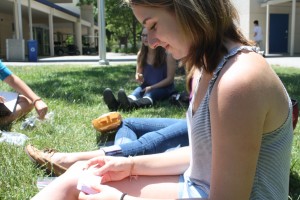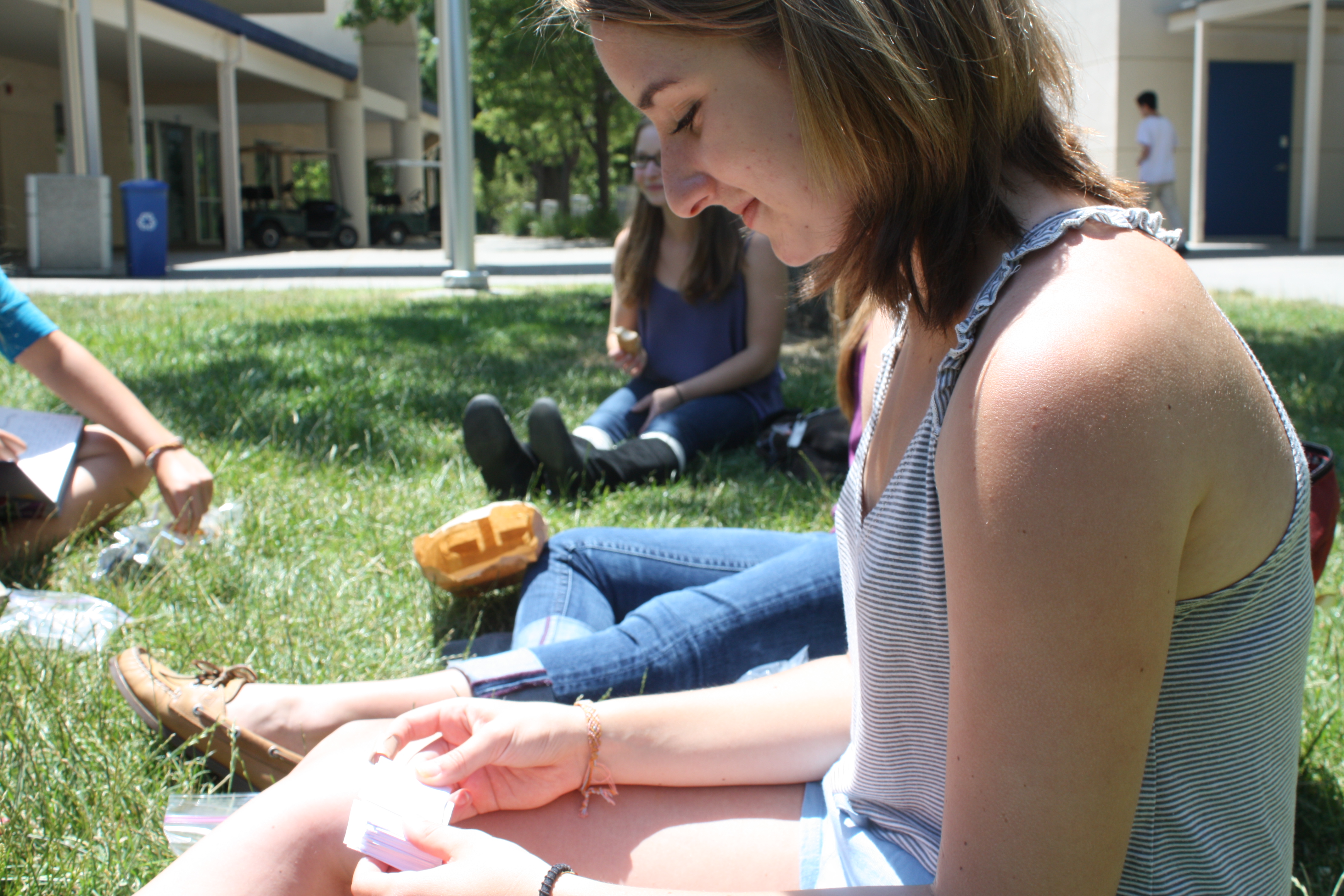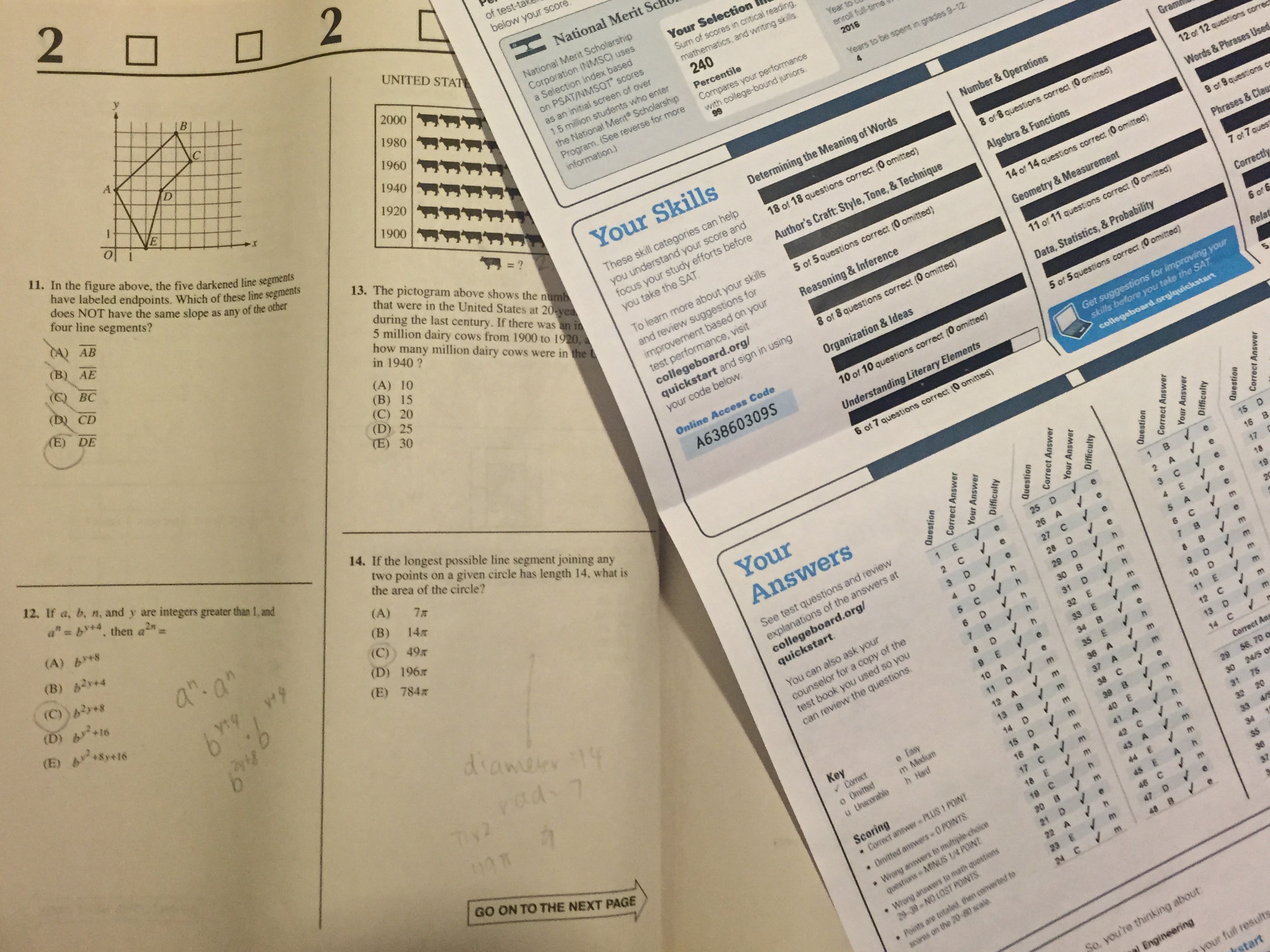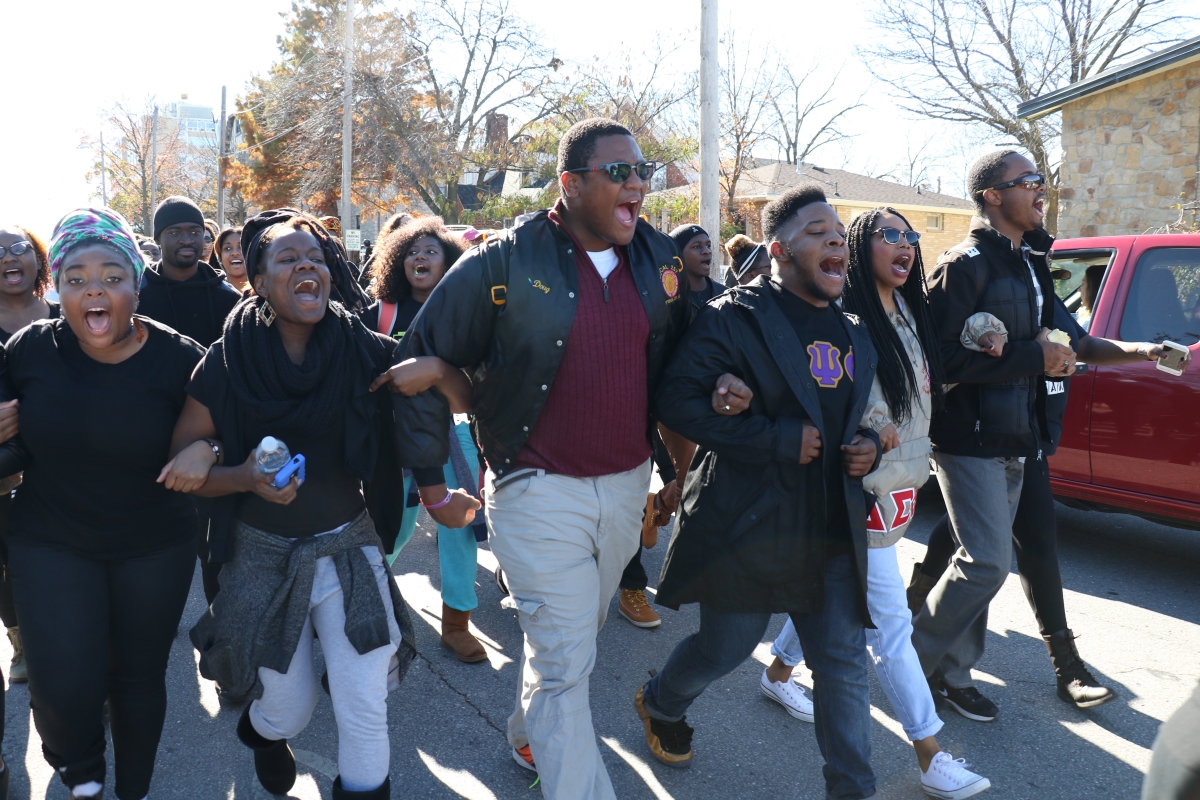Backpacks and planners and books: Oh my!

By Kaity Honeychurch
HUB Staff Writer
Some call it a black void. Others say it is orderly disordered. Those DHS students weren’t talking about the universe though—they were referring to their backpacks.
Junior Brigitte McFarland was like that during her ninth grade year at Holmes Junior High. “I was really unorganized and I just threw everything in my backpack,” McFarland said. But now that she’s discovered the benefits of knowing where everything is at all times, she says she will never return to that chaos.
It was a trial and error process, but she finally worked out a system. “I think things have changed over the year,” she said during her sophomore year. “I realized I didn’t need a whole notebook for Spanish, but I [needed] two for AP Chemistry.”
She tried to make things simple: one binder for the first half of the day, and one for the second.
Junior Gunnar Greve also finds binders useful in keeping himself somewhat organized. He describes his technique as “orderly disorder” and believes “things can be messy as long as I know where everything is,” though he admits binders frustrate him. “They can be really bulky and break. They never last the whole year,” Greve said.
Senior Brian Reed shares Greve’s belief, and opts to use folders instead. “Each has a current work side and an old work side for my different classes,” Reed said.
Binders and folders share the same purpose though: keeping your stuff in its place and keeping you organized.
According to chemistry teacher David Van Muyden, the college prep chemistry class has a system that emphasizes the importance of organization. “I hand out papers—worksheet type things—regularly over a two week period. Kids need to keep their papers and then turn them all in as a packet,” he said.
However, the AP Chemistry class, which McFarland was in during her sophomore year, requires the students to figure it out themselves. “We don’t guide you through what has to be done and what has to be turned in. We just say here’s a bunch of work that you can do to practice,” Van Muyden said.
The one thing that got McFarland through her tough school day, which was filled with classes like AP Chemistry and English 10 Honors, was her planner. “I write everything down in it,” McFarland said.
This small book is a lifeline for many DHS students; it allows them to keep track of assignments, tests and events. “Write in your planner. Take the extra few minutes to stay organized. It’ll be worth it for sure,” junior Amanda Glazer said.
Robert Blake, the director of the UC Consortium for Teaching and Learning, believes planners are important because they allow students to map out their day. “Students must have a schedule and a routine that they follow or else they waste time,” Blake said. “Organizing their time is an important skill for students to develop early on in high school, because in college, everything is compressed and things move at a much quicker pace.”
But to be truly on top of things, your room—and more specifically your desk—must be organized as well. For McFarland, that does not mean having a bare desk. It means having drawers to sort her work into.
“I never throw anything away. When I clean out my binders, everything goes in a drawer in my desk for all my old things. Because you’re going to need that for finals,” McFarland said.
All of her desk drawers have specific purposes. One drawer is specifically devoted to flashcards, her secret weapon against tests because “it’s probably the best way I can think of to commit something to memory.”
McFarland’s flashcard system is very particular. She has Ziploc baggies for every class’s set of cards. She cycles them out, but saves every one of them for later use in preparing for finals. And not only does she have a flashcard drawer, she also has a flashcard pocket in her school bag.
McFarland is famous among classmates for her flashcards. On the day of the final terms test for World Civilizations, students use any free time they have to study for the test later that day. The few minutes before Spencer Elliott’s English 10 Honors class become a short review session.
“Flashcards?” sophomore, now junior, Juliana Burns asked urgently as she whipped her head towards McFarland.
“Yeah, one second,” McFarland replies. A second was all the time she needed to dip her hand in the designated “flashcard pocket” and pull out the Ziploc bag.
Instantly, the review session commenced. “What is the Rhineland?” Burns read off of the card.
But flashcards are just one technique. The bottom line: find what works for you so you don’t have to “spend hours of your day looking for where you wrote something down,” McFarland said.



